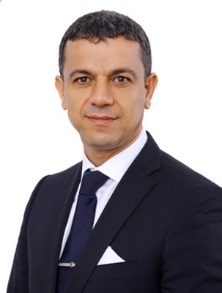Manama: The General Council for Islamic Banks and Financial Institutions (CIBAFI), the global umbrella of Islamic financial institutions has successfully conducted its 3rd strategic session for professional development in the Islamic Finance Institutions (IFIs).
The online strategic session started with opening remarks by Dr. Abdelilah Belatik, Secretary General, CIBAFI. It also witnessed the launch of CIBAFI translated training materials in English and French languages. The translation of CIBAFI training materials comes as a response to the increasing requests from non-Arabic speaking Islamic finance professional who are interested to take CIBAFI professional certifications in Islamic finance. CIBAFI was also announced that trainees can now take the required certification exams online through its web portal.
The highlight of the programme was an interactive panel discussion among CIBAFI professional development officers, human resource executives and managers, and stakeholders on the emerging need to develop the human capacity within the Islamic finance industry and how to overcome challenges in implementing Islamic finance programmes during this current Covid-19 situation.
The speakers included Prof. Dr. Abdullsalam Al Abadi, Secretary General, International Islamic Fiqh Academy, Saudi Arabia; Dr. Layachi Feddad, Senior Researcher, The Islamic Research and Training Institute (IRTI), Saudi Arabia; Abdessamad Issami, President Du Directoire, Umnia Bank, Morocco; Khairul Nizam, Chief Executive Officer, Finance Accreditation Agency Berhad, Malaysia; Dr. Lulwa Al Mutlaq, Founding President, Golden Trust Training and Consultancy, Bahrain; Abdulghani Al-Samawi, General Manager, Institute of Banking Studies, Yemen; Assoc. Prof. Dr. Ahcene Lahsasna, Chief Executive Officer, Salihin Shariah Advisory Services Sdn Bhd, Malaysia; Dr. Mohamed Qalib, Deputy General Manager, Salaam Center for Training, Research and Consultancy, Djibouti and Ms. Zainab Al Owainaty, Director – Administration and Finance, CIBAFI.
During the panel session, training experiences were presented from different countries and jurisdictions with an overview on the main challenges that they are facing during the current situation of COVID–19. The most common initiatives that have been taken to overcome the challenges in implementing Islamic finance programmes were discussed, which include the implementation of online mode of training. Speakers also expressed the importance of translating training programme materials into English, French, Turkish and Russian languages to accommodate the requests from non-Arabic speaking countries. In the same context, the speakers also emphasised the need to enhance the training programmes content and ensure the balance between the theoretical and application/ technical side of the training programmes. The importance of having international accreditation and affiliations was also discussed to take into consideration the characteristics of the trainees in different parts of the world and to raise the level of training in the Islamic finance sector.
This initiative is aligned with CIBAFI’s third objective of Training and Professional Empowerment which endeavors to enhance capacity building in the Islamic financial services industry (IFSI). CIBAFI, as the ‘voice’ of the industry, aims to provide high-level platforms to develop the human capital and bring industry professionals together to encourage dialogue and enhance knowledge sharing on most relevant matters to the IFSI.



